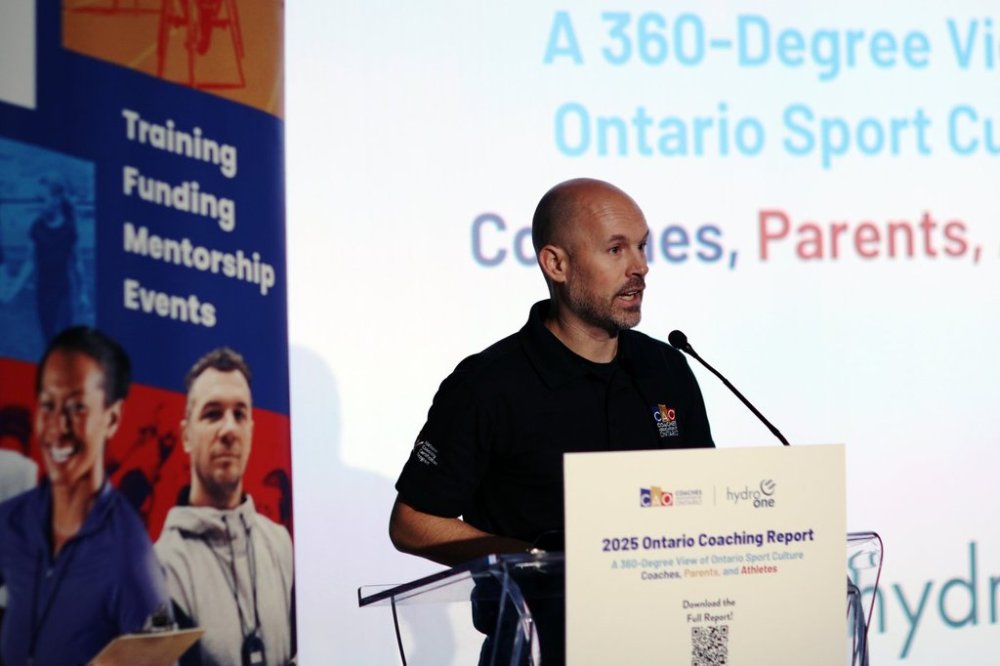Coaches Association of Ontario issues 2025 report on youth sports in the province
Advertisement
Read this article for free:
or
Already have an account? Log in here »
To continue reading, please subscribe:
Monthly Digital Subscription
$0 for the first 4 weeks*
- Enjoy unlimited reading on winnipegfreepress.com
- Read the E-Edition, our digital replica newspaper
- Access News Break, our award-winning app
- Play interactive puzzles
*No charge for 4 weeks then price increases to the regular rate of $19.00 plus GST every four weeks. Offer available to new and qualified returning subscribers only. Cancel any time.
Monthly Digital Subscription
$4.75/week*
- Enjoy unlimited reading on winnipegfreepress.com
- Read the E-Edition, our digital replica newspaper
- Access News Break, our award-winning app
- Play interactive puzzles
*Billed as $19 plus GST every four weeks. Cancel any time.
To continue reading, please subscribe:
Add Free Press access to your Brandon Sun subscription for only an additional
$1 for the first 4 weeks*
*Your next subscription payment will increase by $1.00 and you will be charged $16.99 plus GST for four weeks. After four weeks, your payment will increase to $23.99 plus GST every four weeks.
Read unlimited articles for free today:
or
Already have an account? Log in here »
TORONTO – The Coaches Association of Ontario has issued its 2025 report, the third in a series on youth sport in the province.
The Ontario Coaching Report offers a “360-degree view” of sport culture in the province, relying on surveys of coaches, parents, and athletes.
There were several key findings in the surveys conducted in partnership with Leger and Hydro One.

Early specialization continues to be a problem in youth sports as half of all coaches, athletes, and parents surveyed believe it is appropriate to specialize in one sport before age 12, years earlier than the national sport system recommends.
Hazing remains widespread with 90 per cent of coaches, athletes and parents in agreement that it’s a problem, yet only two in five coaches say they always intervene when it occurs.
The report also says that coaches are overestimating their connection with their athletes, as fewer than one in five athletes say their coach regularly checks in about mental health or personal challenges.
This report by The Canadian Press was first published Nov. 27, 2025.

